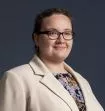On March 21, 2023, the Surplus Lines (C) Task Force (the "Task Force") met at the Spring 2023 National Meeting of the US National Association of Insurance Commissioners ("NAIC"). Among other matters, the Task Force voted to adopt certain amendments to the Nonadmitted Insurance Model Act (the "Model Act").
Background
In 2011, the Nonadmitted and Reinsurance Reform Act ("NRRA") was enacted into law as part of the Dodd-Frank Wall Street Reform and Consumer Protection Act. The NRRA dramatically changed the regulation of surplus lines insurance by preempting state insurance laws in a number of respects. Among other things, the NRRA provided that only the home state of the insured is entitled to collect premium taxes for surplus lines insurance. If the insured is a business entity, the home state is defined as the state in which the insured maintains its principal place of business, unless 100 percent of the insured risk is located outside of that state, in which case the home state is the state to which the greatest percentage of the insured's taxable premium for the particular surplus lines placement is allocated. Although states have generally amended their surplus lines laws to conform to the NRRA, the NAIC had not sought to revise the Model Act to conform to the NRRA until recently.
Recognizing the need to align the Model Act with the requirements of the NRRA, a drafting group was convened by the Task Force and began work on revisions to the Model Act on August 19, 2021. After exposing a series of drafts of a revised version of the Model Act and considering comments from interested parties on those drafts, on March 21, 2023, the Task Force approved a final draft of the revised Model Act and referred it to the next level—the NAIC Property and Casualty (C) Committee—which approved the draft at its meeting on March 24, 2023. The final step is that the NAIC's Executive (EX) Committee & Plenary will consider approving the revised Model Act during the Summer 2023 NAIC National Meeting.
Proposed Amendments to the Model Act
Some notable revisions that have been proposed to the Model Act include the following.
- Most significantly, the revised Model Act has been conformed to the NRRA's method of allocating premium taxes based on the home state of the insured, including by adding definitions of "home state," "principal place of business" and "principal residence" that are based on the NRRA definitions.
- However, one issue that remains unresolved is the method of determining the home state for policies issued to an unaffiliated group. That issue is not expressly addressed in the NRRA, and after considerable discussion, the Task Force decided to leave it unaddressed as well.
- In the case of a policy issued to an affiliated group, the NRRA defines the "home state" as the home state of the member of the affiliated group that has the largest percentage of premium attributed to it under the group insurance contract.
- Initially, the Task Force had considered two options for determining the home state in the case of a policy issued to an unaffiliated group.
- Option 1 was that if the group policyholder paid 100 percent of the premium from its own funds, then the methodology for determining the home state would be the same as is used for an affiliated group. However, if the policyholder does not pay 100 percent of the premium from its own funds, then the home state would have to be determined on an individual basis for each member of the group.
- Option 2 provided that the home state of the group would be determined in all cases using the same methodology as is used for an affiliated group.
- Ultimately, the Task Force decided not to include a provision in the revised Model Act that would define "home state" in the case of a policy issued to an unaffiliated group, but rather to leave it to each state to determine its own approach.
- The revised Model Act now also incorporates a definition of "exempt commercial purchaser" that is also based on the NRRA definition. Under the NRRA, and now the revised Model Act, a surplus lines broker seeking to place nonadmitted insurance with a prospective insured that meets the definition of an "exempt commercial purchaser" is not required to satisfy otherwise applicable diligent search requirements, subject to certain conditions.
- One point of divergence from the NRRA is that whereas the NRRA defines "nonadmitted insurance" as only applying to "property and casualty insurance," the revisions to the Model Act have added a definition of "nonadmitted insurance" that is not limited to property and casualty insurance, which means that it could potentially include accident and health insurance. This is significant because the surplus lines market has recently expanded to include various types of accident and health insurance that are not available in the admitted market (a topic that is itself the subject of an NAIC guideline adopted in 2019).
- The revised Model Act includes an important optional provision that is unrelated to the NRRA. This provision recognizes the concept of a domestic surplus lines insurer ("DSLI"). Historically, because a surplus lines carrier has always been admitted in its domestic jurisdiction, it has not been able to write insurance on a surplus lines basis in that jurisdiction. However, about 20 states have amended their laws to allow surplus lines carriers to obtain approval to operate in the state as a DSLI, meaning that they are able to write insurance on a surplus lines basis even in their state of domicile. Inclusion of the optional DSLI provision in the revised version of the Model Act could facilitate the adoption by additional states of laws allowing domestic insurers to operate as DSLIs.
To view additional updates from the US NAIC Spring 2023 National Meeting, visit our meeting highlights page.
Visit us at mayerbrown.com
Mayer Brown is a global services provider comprising associated legal practices that are separate entities, including Mayer Brown LLP (Illinois, USA), Mayer Brown International LLP (England & Wales), Mayer Brown (a Hong Kong partnership) and Tauil & Chequer Advogados (a Brazilian law partnership) and non-legal service providers, which provide consultancy services (collectively, the "Mayer Brown Practices"). The Mayer Brown Practices are established in various jurisdictions and may be a legal person or a partnership. PK Wong & Nair LLC ("PKWN") is the constituent Singapore law practice of our licensed joint law venture in Singapore, Mayer Brown PK Wong & Nair Pte. Ltd. Details of the individual Mayer Brown Practices and PKWN can be found in the Legal Notices section of our website. "Mayer Brown" and the Mayer Brown logo are the trademarks of Mayer Brown.
© Copyright 2023. The Mayer Brown Practices. All rights reserved.
This Mayer Brown article provides information and comments on legal issues and developments of interest. The foregoing is not a comprehensive treatment of the subject matter covered and is not intended to provide legal advice. Readers should seek specific legal advice before taking any action with respect to the matters discussed herein.




